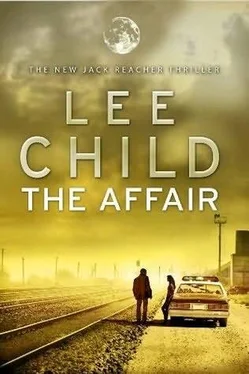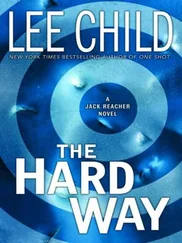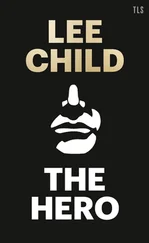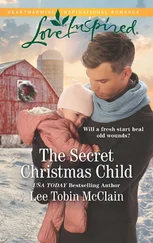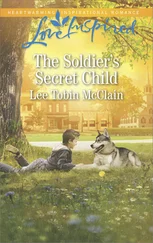The boy was quiet for a second. Then he asked, “What part of the army are you in?”
“Military Police.”
“Is that a tough job?”
“Tougher than tough,” I said. “Think about it logically. Any soldier could kick your ass, and I could kick any soldier’s ass.”
“For real?”
“More than real,” I said. “Real is for other people. Not for us.”
He asked, “What do you want to talk about?”
“A hunch.”
“What kind?”
I said, “My guess is no one ever talked to you about your sister’s death.”
He looked down.
I said, “Normally with a homicide victim, they talk to everyone who knew her. They ask for insights and opinions. They want to know what kinds of things she did, where she went, who she hung with. Did they ever talk to you about that kind of stuff?”
“No,” he said. “Nobody ever talked to me.”
“They should have,” I said. “I would have. Because brothers know things about sisters. Especially at the ages you two were. I bet you knew things about Shawna that no one else did. I bet she told you things she couldn’t tell your mom. And I bet you figured out some stuff on your own.”
The kid shuffled in place a little. Bashful, and a little proud. Like saying: Yeah, maybe I did figure some things out . Out loud he said, “No one ever talks to me about anything.”
“Why not?”
“Because I’m deformed. They think I’m slow, too.”
“Who says you’re deformed?”
“Everybody.”
“Even your mom?”
“She doesn’t say it, but she thinks it.”
“Even your friends?”
“I don’t have any friends. Who would want to be friends with me?”
“They’re all wrong,” I said. “You’re not deformed. You’re ugly, but you’re not deformed. There’s a difference.”
He smiled. “That’s what Shawna used to tell me.”
I pictured the two of them together. Beauty and the beast. A tough life, for both of them. Tough for him, with the endless implied comparisons. Tough for her, with the endless need for tact and patience. I said, “You should join the army. You’d look like a movie star compared to half the people I know. You should see the guy that sent me here.”
“I’m going to join the army,” he said. “I talked to someone about it.”
“Who did you talk to?”
“Shawna’s last boyfriend,” he said. “He was a soldier.”
The kid invited me inside. His mom was out, and there wasa pitcher of iced tea in the refrigerator. The house was dim and shuttered. It smelled stale. It was mean and narrow inside, but it had plenty of rooms. An eat-in kitchen, a living room, and what I guessed were three bedrooms in back. Space for two parents and two kids, except I saw no sign of a father, and Shawna was never coming home again.
The kid told me his name was Bruce. We took glasses of tea and sat at the kitchen table. There was an old wall phone next to the refrigerator. Pale yellow plastic. Its cord had been stretched about twelve feet long. There was an old television set on the countertop. Small, but color, with chrome accents on the cabinet. Practically an antique, probably rescued from a trash pile somewhere and polished up like an old Cadillac.
Up close and personal the kid was no better looking than he had been outside. But if you ignored his head, then the rest of him was in pretty good shape. He was all bone and muscle, broad through the chest and the shoulders, thick in the arms. Deep down he seemed patient and cheerful. I liked him, basically.
He asked me, “Would they really let me join the army?”
“Who is they?”
“The army, I mean. The army itself. Would they let me in?”
“Do you have felony convictions?”
“No, sir.”
“An arrest record of any kind?”
“No, sir.”
“Then of course they’ll let you in. They’d take you today if you were old enough.”
“The others would laugh at me.”
“Probably,” I said. “But not for the reason you think. Soldiers aren’t like that. They’d find something else. Something you never even thought of yet.”
“I could wear my helmet all the time.”
“Only if they find one big enough.”
“And night vision goggles.”
“Maybe a bomb disposal hood,” I said. I figured bomb disposal was the coming thing. Small wars and booby traps. But I didn’t say so. Not the kind of message a potential recruit wants to hear.
I sipped my tea.
The boy asked me, “Do you watch television?”
“Not much,” I said. “Why?”
“They have commercials,” he said. “Which means they have to fit an hour’s story into forty-some minutes. So they get right to it.”
“You think that’s what I should do now?”
“That’s what I’m saying.”
“So who do you think killed your sister?”
The boy took a sip of tea and a serious breath and then he started in on everything he had been thinking about, and everything he had never been asked about. It all came tumbling out, fast, coherent, responsive, and thoughtful. He said, “Well, her throat was cut, so we need to think about who is trained to do that kind of thing, or experienced with that kind of thing, or both.”
That kind of thing . His sister’s throat.
I asked, “So who fits the bill?”
“Soldiers,” he said. “Especially here. And ex-soldiers, especially here. Fort Kelham is field training for special ops guys. They know those skills. And hunters. And most people in town, to be honest. Including me.”
“You? Are you a hunter?”
“No, but I have to eat. People keep pigs.”
“And?”
“You think pigs commit suicide? We cut their throats.”
“You’ve done that?”
“Dozens of times. Sometimes I get a dollar.”
I asked, “When and where did you last see Shawna alive?”
“It was the day she was killed. It was a Friday in November. She left here about seven o’clock. After dark, anyway. She was all dressed up.”
“Where was she going?”
“Across the tracks. To Brannan’s bar, probably. That’s where she usually went.”
“Is Brannan’s the most popular bar?”
“They’re all popular. But Brannan’s is where most folk start out and finish up.”
“Who did Shawna go with that night?”
“She left on her own. Probably she was going to meet her boyfriend at the bar.”
“Did she ever get there?”
“No. She was found two streets from here. Where someone started to build a house.”
“The place with the gravel pile?”
The boy nodded. “She was dumped right on it. Like a human sacrifice in a history book.”
We got up fromthe table and poked around the kitchen for a minute. Then we took more tea and sat down again. I said, “Tell me about Shawna’s last boyfriend.”
“First white boyfriend she ever had.”
“Did she like him?”
“Pretty much.”
“Did they get along?”
“Pretty good.”
“No problems?”
“Didn’t see any.”
“Did he kill her?”
“He might have.”
“Why do you say that?”
“Can’t rule him out.”
“Gut feeling?”
“I want to say no, but someone killed her. It could have been him.”
“What was his name?”
“Reed. That was all Shawna ever said. Reed this, Reed that. Reed, Reed, Reed.”
“Last name?”
“I don’t know.”
“We wear name tapes,” I said. “Battledress uniform, above the right breast pocket.”
“I never saw him in uniform. They all wear jeans and T-shirts to town. Jackets, sometimes.”
“Officer or enlisted man?”
“I don’t know.”
Читать дальше
